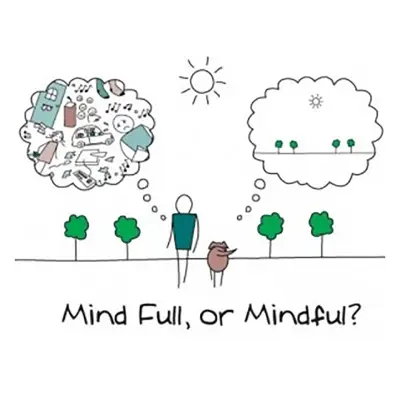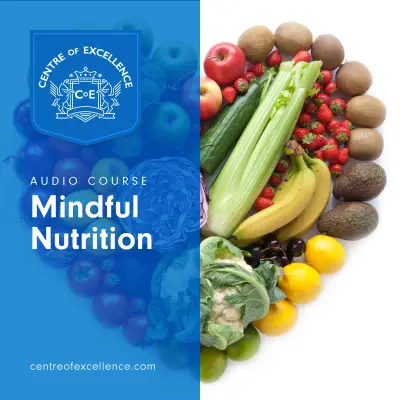Buddhism, a rich and ancient tradition, offers a unique perspective on life and spirituality. Central to its teachings is the Noble Eightfold Path, a guiding framework for living a meaningful and fulfilling life. This path is a blueprint for anyone seeking a balanced and thoughtful existence. Let’s explore this fascinating aspect of Buddhism, diving into each element of the Eightfold Path in detail.
Jump to:
- What is the Eightfold Path in Buddhism?
- Why is the Eightfold Path Important?
- 1. Right Understanding
- 2. Right Intent
- 3. Right Speech
- 4. Right Action
- 5. Right Livelihood
- 6. Right Effort
- 7. Right Mindfulness
- 8. Right Concentration
- Is the Eightfold Path a good guide for life?
- How do you practice the Eightfold Path in daily life?
What is the Eightfold Path in Buddhism?
The Eightfold Path is a set of principles that guide Buddhists towards enlightenment and inner peace. Think of it as a compass pointing you towards a harmonious and ethical way of life. It's eight interconnected aspects that work together, creating a comprehensive approach to personal and spiritual growth.
Why is the Eightfold Path Important?
The Eightfold Path is more than just a set of guidelines; it’s a way to transform your life. By following these principles, you better understand yourself and your place in the world. This path teaches you to live in harmony with others and the environment, fostering a life of balance, compassion, and wisdom.
1. Right Understanding

Right Understanding, or Samma Ditthi in Pali, is the foundation upon which the Noble Eightfold Path is built. It's about perceiving the world accurately and with clarity. This understanding is a deep, insightful appreciation of how things are.
Understanding the Four Noble Truths
At the heart of Right Understanding is the grasp of the Four Noble Truths, which are central to Buddhist teachings. These truths explain the nature of suffering (Dukkha), its origin (Samudaya), the cessation of suffering (Nirodha), and the path leading to this cessation (Magga). By understanding these truths, you begin to see the impermanent and interconnected nature of all things.
The Reality of Suffering
Acknowledging the reality of suffering is essential in Right Understanding. It's recognising that suffering is a part of life - not as a pessimistic view, but as a realistic acknowledgement. This suffering comes in many forms, from physical pain to emotional distress, from the frustration of unfulfilled desires to the inevitable changes life brings.
The Causes of Suffering
Understanding the causes of suffering is equally important. According to Buddhism, suffering primarily stems from desires, aversions, and ignorance. Desires can lead to attachment, aversions to repulsion, and ignorance to misunderstanding the true nature of things. This insight helps you understand why suffering arises and how your perceptions and desires shape your experience of the world.
Interconnectedness of All Things
Another essential aspect of Right Understanding is seeing the interconnectedness of all life. This concept, often called dependent origination, suggests nothing exists in isolation. Every action, thought, and occurrence is part of an intricate web of cause and effect. This understanding encourages a sense of compassion and empathy as you realise how your actions impact others and the world around you.
The Path to Wisdom
Embracing Right Understanding is the first step towards wisdom. It involves a continuous process of learning, reflecting, and experiencing. As you deepen your understanding, you start to let go of misconceptions and see things more clearly. This clarity of thought and perception sets the stage for the rest of the Eightfold Path, guiding you towards a more enlightened and compassionate way of living.
2. Right Intent

Right Intent, also known as Samma Sankappa in Pali, is the second step of the Noble Eightfold Path and builds upon the foundations laid by Right Understanding. It means setting your mind and heart in the right direction and fostering intentions that lead to personal and collective well-being. It’s about the attitude and motivation behind your actions and an internal commitment to ethical and compassionate living.
Three Key Elements of Right Intent
- Intention of Renunciation: Renunciation is a mental state of letting go, creating space for more peace and contentment. It involves releasing the grip of unhelpful desires and cravings and recognising that clinging to material possessions, status, or even certain outcomes in life can lead to suffering.
- Intention of Non-harm: This intention is a commitment to cultivating thoughts, speech, and actions that do not cause harm or suffering to others or yourself. You should practice empathy and compassion, recognising the interconnectedness of all beings and striving to contribute positively to their well-being.
- Intention of Goodwill: This means loving-kindness and benevolence towards all beings. It's an active practice of wishing well for others, replacing feelings of ill-will and hatred with understanding and compassion.
Aligning Actions with Values
Right Intent means aligning your daily actions with your deepest values. It's a continuous process of reflecting on your motivations and ensuring they are rooted in kindness, compassion, and wisdom. This alignment leads to actions that are more mindful and ethical, enhancing your life and the lives of those around you.
The Role of Mindfulness
Mindfulness plays a crucial role in cultivating Right Intent. By being aware of your thoughts and emotions, you can guide them towards more positive and compassionate directions. This mindful awareness helps you to catch and transform harmful intentions as they arise, steering your mind towards more wholesome states.
3. Right Speech

Right Speech, known as Samma Vaca in Pali, is the third aspect of the Noble Eightfold Path, and it plays an important role in how we interact with the world. It promotes using communication as a tool for good, fostering understanding, harmony, and respect in relationships.
The Power of Words
Right Speech is grounded in the understanding that words have immense power. They can heal or hurt, build up or break down. This aspect of the Eightfold Path teaches you to be mindful of this power and to use your words responsibly.
Four Pillars of Right Speech
- Truthfulness: This is the cornerstone of Right Speech. It involves speaking the truth in a thoughtful and considerate manner. Being truthful doesn't mean being brutally honest in a way that hurts others; it is about being honest in a beneficial and respectful way.
- Non-harmful Speech: This means avoiding hurtful or offensive words and refraining from speech that can cause division, distress, or anger. It's not just about what you say but also about the tone and intention behind your words.
- Harmonious Speech: This involves speaking in a way that promotes harmony and goodwill. It's about avoiding gossip, slander, and divisive talk. Harmonious speech seeks to unite rather than divide, fostering understanding and empathy.
- Encouraging Speech: This is about using words to uplift and inspire those around you. Encouraging speech spreads positivity and boosts the morale of others.
Mindfulness in Communication
Practising Right Speech requires mindfulness, helping you understand your thoughts and emotions and how they influence your words. Before speaking, ask yourself: Is it true? Is it necessary? Is it kind? This reflective practice helps ensure that your words align with your values of compassion and respect.
Challenges in Practising Right Speech
In the modern world, where communication is constant and often impulsive, practising Right Speech can be challenging. It requires patience, self-awareness, and a commitment to personal growth.
Transformative Power of Right Speech
Right Speech has the potential to transform your relationships and your inner self. As you become more mindful of your words, you develop greater empathy and self-awareness. This practice nurtures a sense of inner peace and harmony, reflected in your interactions with others.
4. Right Action

Right Action, or Samma Kammanta in Pali, is the fourth step in the Noble Eightfold Path. It means making choices that reflect a deep respect for yourself, others, and the world. This is about putting your ethical beliefs into practice through your actions.
The Ethical Foundation of Right Action
Right Action is built on the principle of non-harm, choosing actions that do not cause harm or suffering to others, whether they are people, animals, or the environment. It's an embodiment of compassion and kindness in every act you perform.
Key Aspects of Right Action
- Non-harming: This is the heart of Right Action. It includes physical harm but also extends to emotional or psychological harm. Practising non-harm encourages a deep respect for all life.
- Living Honestly: Right Action involves a commitment to honesty and integrity, including being truthful in your dealings with others and avoiding dishonesty, theft, or deceit. Living honestly builds trust and fosters a sense of security and harmony in your relationships.
- Respect for the Environment: This means being mindful of your impact on the world around you. It’s about making sustainable and eco-friendly choices, recognising that we are all part of an interconnected ecosystem.
Right Action in Daily Life
Implementing Right Action in daily life could be as simple as offering help to someone in need, making ethical consumer choices, or volunteering for a good cause. Remain mindful of the consequences of your actions and make choices that align with your values of compassion and respect.
Overcoming Challenges
Practising Right Action often requires making difficult choices, especially when the ethical path is not the easiest. It involves constant self-reflection and the willingness to admit and learn from mistakes.
5. Right Livelihood

Right Livelihood, or Samma Ajiva in Pali, is the fifth element of the Noble Eightfold Path. It means making conscious choices about earning your living and ensuring that your work aligns with your ethical and moral values. This principle encourages you to reflect on the impact of your professional life on yourself, others, and the wider world.
Right Livelihood encourages you to choose a profession that contributes positively to the wellbeing of society and the environment. How you earn your income should align with your path of ethical and compassionate living path.
Ethical Considerations in Choosing Work
In choosing a profession that reflects Right Livelihood, there are a few key considerations:
- Non-Harming: Choose work that does not cause harm or suffering to others. This includes avoiding jobs that directly or indirectly contribute to harming people, animals, or the environment.
- Contribution to Society: Seek work that has a positive impact on society. This can be through providing valuable services, contributing to the community, or through practices that promote fairness, health, and wellbeing.
- Personal Integrity: Your work should not force you to compromise your values and principles. It should allow you to maintain your integrity and inner peace.
Challenges in Practising Right Livelihood
Fully aligning your work with ethical principles may involve making difficult choices, such as turning down opportunities that don't align with your values or re-evaluating your current career path. Right Livelihood calls for a balance between practical needs and ethical living.
Right Livelihood in Everyday Life
Practising Right Livelihood can also extend to everyday decisions related to your work, like being honest in your business dealings, treating colleagues with respect, and making eco-friendly choices in your workplace.
Personal Fulfilment and Growth
Aligning your professional life with your values brings a sense of fulfilment and authenticity. It contributes to your growth, challenging you to live consistently with your beliefs and values.
6. Right Effort

Right Effort, or Samma Vayama in Pali, is the sixth aspect of the Noble Eightfold Path and is about developing and maintaining wholesome qualities in your mind. This step is often likened to tending a garden, where careful maintenance leads to a flourishing of positive qualities and the diminishing of negative ones.
Right Effort means deliberately nurturing positive thoughts and emotions while preventing and overcoming negative ones. This doesn't mean suppressing your feelings but understanding and managing them healthily and constructively.
Four Dimensions of Right Effort
- Preventing Unwholesome States: Being vigilant and mindful to prevent harmful thoughts, emotions, and actions.
- Overcoming Unwholesome States: When negative thoughts and emotions arise, Right Effort focuses on finding skilful ways to let go of them. This can involve various practices like mindfulness, reflection, and meditation.
- Cultivating Wholesome States: This is about actively developing positive qualities such as kindness, compassion, patience, and generosity.
- Maintaining Wholesome States: Once positive qualities are developed, Right Effort ensures that these are maintained and not lost, so they grow stronger and become a natural part of your character.
Balancing Effort
Right Effort is also about balancing how much energy we put into our mental cultivation. Too much effort can lead to stress and burnout, while too little can cause stagnation.
The Role of Mindfulness
Mindfulness plays an important role in Right Effort. This means being aware of the present moment and your current mental state, which allows you to recognise unwholesome thoughts and emotions.
Overcoming Challenges
Practising Right Effort can be challenging, especially in the face of persistent negative thoughts or difficult circumstances. It requires patience, perseverance, and a compassionate attitude towards yourself.
7. Right Mindfulness

Right Mindfulness, known as Samma Sati in Pali, is the seventh step on the Noble Eightfold Path and is a practice of being aware and present in every moment of life. It involves the conscious effort to be fully present in each moment, observing your thoughts, feelings, physical sensations, and the environment around you without judgment or distraction. This awareness leads to a deeper understanding of yourself and the world.
Key Elements of Right Mindfulness
- Mindfulness of the Body: This involves awareness of your physical sensations and movements and recognising the body’s actions, postures, and breath. Mindfulness of the body helps ground you in the present moment and connects you with the physical world.
- Mindfulness of Feelings: This is about observing your emotions just as they are, noticing how feelings arise, change, and pass. This awareness helps in understanding how emotions influence your thoughts and actions.
- Mindfulness of Mind: This aspect focuses on being aware of your mental state and observing your thoughts and mindsets without getting caught up in them. This awareness offers insight into how your mind works and shapes your world perception.
- Mindfulness of Phenomena: This involves observing the world and your interactions, and understanding how events and experiences affect your mind.
The Practice of Mindfulness
Practising Right Mindfulness can be done through meditation, but it’s also about maintaining this awareness throughout your daily life. Stay present and attentive in your interactions, tasks, and even during rest.
Benefits of Right Mindfulness
Right Mindfulness offers numerous benefits. It enhances your ability to concentrate, reduces stress, and fosters a deeper sense of peace and clarity.
Overcoming Obstacles
A common challenge in practising mindfulness is dealing with distractions and wandering thoughts. The key is not to get frustrated but to gently bring your focus back to the present whenever you notice your mind drifting.
8. Right Concentration

Right Concentration, known as Samma Samadhi in Pali, is the eighth and final step on the Noble Eightfold Path. It's the practice of cultivating a deeply focused and tranquil state of mind, typically achieved through meditation. This aspect of the path is about honing your mental faculties to reach a deep concentration, leading to greater insight and inner peace.
Stages of Concentration
Right Concentration is often developed through the practice of meditation, which traditionally includes the following stages:
- Preparation: This involves creating a conducive environment for meditation — a quiet, peaceful space where you can sit undisturbed.
- Initial Focus: Focus on a simple object or concept, such as the breath, a mantra, or a visual image. This helps to steady the mind and draw your attention away from distractions.
- Deepening Focus: As you become more comfortable with your object of focus, your concentration deepens. This stage involves gradually refining your focus, leading to a more absorbed state of mind.
- Full Absorption: In this stage, you enter a state of deep concentration where the mind is fully immersed in its object of focus. This is a state of tranquillity and clarity, often described as a form of meditative absorption or 'jhana.'
Benefits of Right Concentration
Practising Right Concentration has several benefits. It enhances mental clarity, reduces stress, and fosters a sense of inner peace. Deep concentration also prepares the mind for deeper insights into the nature of reality, which is a key aspect of Buddhist wisdom.
Overcoming Challenges
One of the challenges in practising Right Concentration is dealing with distractions and a wandering mind. Patience and persistence are essential, as is the understanding that developing concentration is gradual.
Recommended for you!
Best SellersIs the Eightfold Path a good guide for life?
The Eightfold Path is a fantastic guide for life as it offers a framework for living ethically, mindfully, and with compassion. These principles can enhance your life, bringing clarity, peace, and purpose regardless of your religious beliefs.
How do you practice the Eightfold Path in daily life?
Practising the Eightfold Path in daily life starts with small steps. Begin by being mindful of your thoughts and actions. Reflect on your speech and interactions with others, and consider your work and its impact on the world. The key is to be aware and make choices that align with these principles.
Embrace the Noble Eightfold Path with Centre of Excellence
If you’re fascinated by the teachings of Buddhism and the Noble Eightfold Path, our Buddhism Diploma Course provides an immersive journey into these enlightening principles.
What You'll Learn:
- Foundations of the Eightfold Path: Delve into the rich teachings of the Noble Eightfold Path, understanding each step in detail and its relevance to modern life.
- Integrating Principles: Learn how to incorporate the Eightfold Path into your daily routine, enhancing your mental, emotional, and spiritual wellbeing.
- Transformative Insights: Gain valuable insights on how these ancient teachings can be applied to personal development, relationships, and achieving a balanced life.
Special Offer for Our Readers:
For a limited time, the Buddhism Diploma Course is available at a special discounted rate of just £29, saving you over £100!













